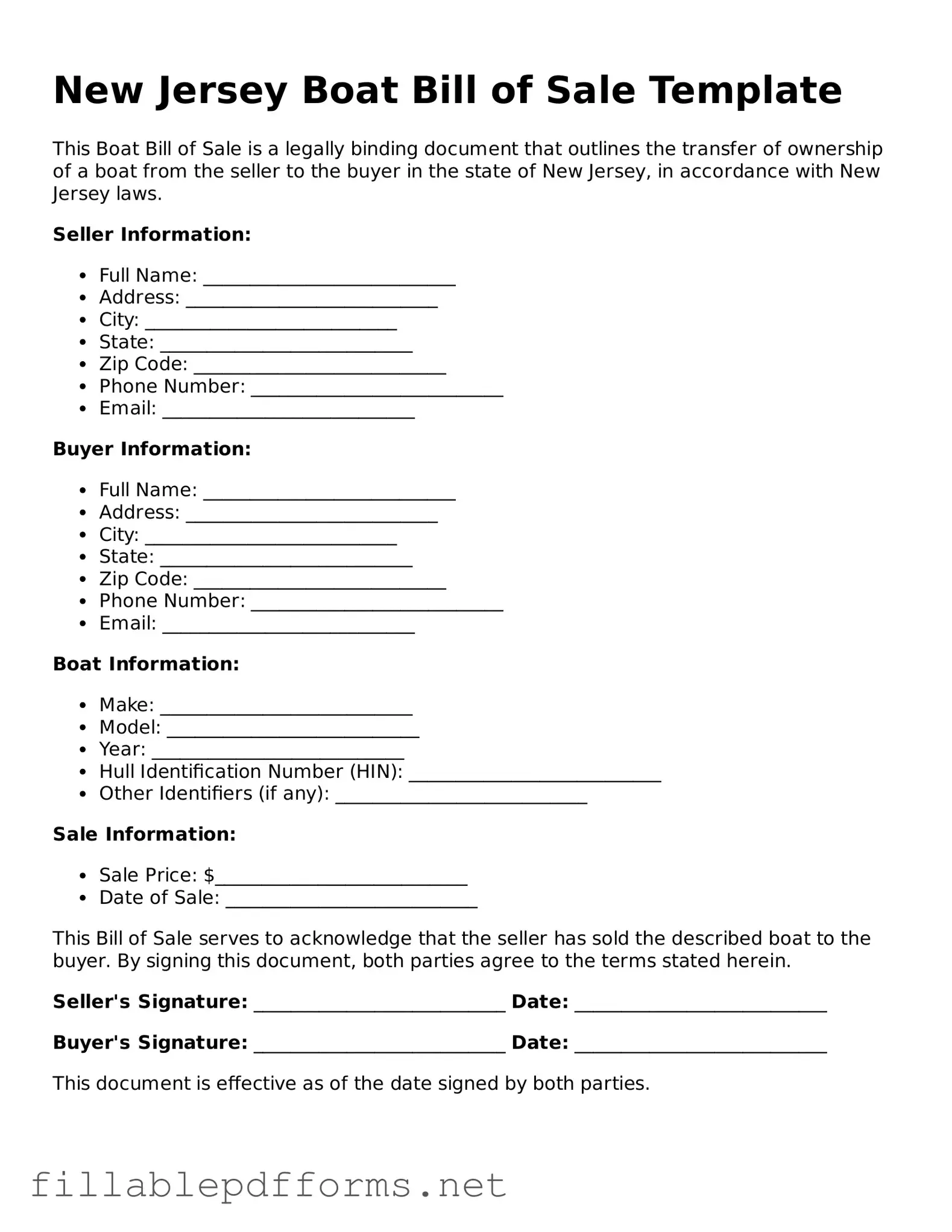Attorney-Verified Boat Bill of Sale Form for New Jersey State
The New Jersey Boat Bill of Sale form is a legal document used to transfer ownership of a boat from one party to another. This form serves as proof of the transaction and outlines key details such as the purchase price, the boat's specifications, and the parties involved. Understanding this form is essential for both buyers and sellers to ensure a smooth transfer process and to protect their rights.
Launch Editor Here

Attorney-Verified Boat Bill of Sale Form for New Jersey State
Launch Editor Here

Launch Editor Here
or
▼ Boat Bill of Sale PDF
Almost there — finish the form
Complete Boat Bill of Sale online fast — no printing, no scanning.